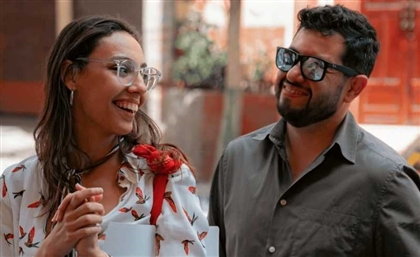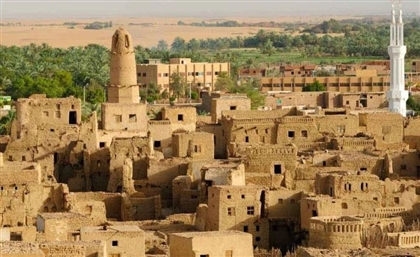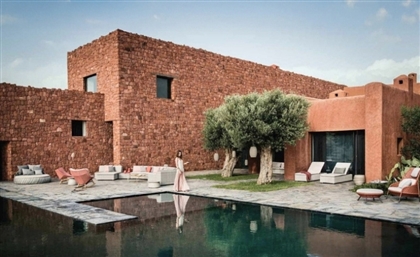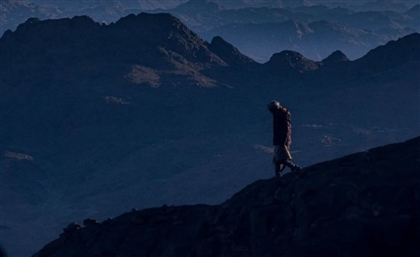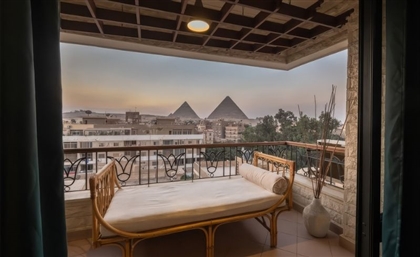Own Your Holiday: How NFTs Are Changing Up the Travel Industry
What does it mean when we read all those headlines about NFT hotels and NFT booking services taking over the industry? We help clear the air around this digital realm where the rules change on a whim.

The first NFT hotel booking in history was made in August 2021, when it was sold for 1 ETH. For those unfamiliar with the cryptic world of cryptocurrencies. How much does 1 ETH go for? 'ETH' is short for Ether, the second largest cryptocurrency after Bitcoin, and is offered on Ethereum - one among a growing number of blockchains being used to create cryptocurrencies and NFTs. The value of these cryptocurrencies are constantly shifting. As of the time of this writing, 1 ETH is equivalent to USD 965. When that hotel booking was sold, 1 ETH was valued at around USD 3,200.
In a digital realm where the rules seem to change on a whim, NFTs may seem like a risky venture to the casual observer - one that people may not want to burden themselves with when they're already embroiled in their complicated travel plans. So what does it mean when we read all those headlines about NFT hotels and NFT booking services taking over the industry? Are our booking prices about to go haywire? And what of the environment, which is harmed by blockchains consuming massive amounts of energy to sustain themselves? Will NFT reservations at an eco camp forever be doomed as an act of tragic irony? And most importantly, why is the hospitality business bothering with NFTs in the first place? It's about the money, isn't it??
Yes, of course it is, but they’re also doing it for other reasons. To answer those questions it is first important to clear the fog and clarify what an NFT actually is. Between marketers framing them as the next step in human evolution towards a cyberpunk wonderland and critics panning them as overpriced JPEGs, it can be easy to lose track of the fact that at the end of the day, NFTs are essentially just receipts. Ledgers. Highly secure records made for commercial purposes, which take up a unique and irreplaceable space in the blockchain.
You're not buying a digital drawing of a chimpanzee that's overcome by ennui; you're not even necessarily buying the ownership rights over it. You're buying a proof of purchase that shows you paid money for a digital drawing of the discontented primate. The distinction is important. The drawing can easily be copied by anyone with an internet connection and a PRT SC button. The proof of purchase - the actual NFT - can't.
In the context of bookings, NFTs suddenly have more practical applications than what you may find in some digital artist's latest extravagantly priced collection. Yes, hospitality companies like Marriott dipped their toes in the NFT art scene with their loyalty programme, Marriott Bonvoy, at 2022's Art Basel Miami, allowing members to unlock Bonvoy points with some NFTs. And indeed the luxurious Venetian hotel Ca' di Dio has its own NFT art gallery. But that's not what this article is about.
One company looking to take advantage of those applications is Pinktada, a new service that has been described as the 'StubHub of hotel reservations'. Much like how StubHub allows people to resell their tickets to sports and concerts, Pinktada allows travellers to resell and transfer their hotel reservation online, a process that is made possible and secure by having the reservation initially sold as an NFT. Casa de Camp Resort & Villas, a hotel in the Dominican Republic, is among the first to adopt Pinktada's platform, alongside six other hotels in Hawaii.
Similarly, the NoMo SoHo hotel in New York City has become the first hotel in the United States to offer regular NFT bookings as of May 2022. The NoMo SoHo offers special perks with their NFT reservations such as late check-out, complimentary breakfast, and other utilities, adding up to an experience akin to a membership club. These NFTs are very exclusive, with only 300 offered at launch.
Vietnamese hospitality company Crystal Bay Group meanwhile have teamed up with the Beowulf blockchain to create Crystabaya, their own marketplace for NFT-based hotel reservations and travel products. It may not be an exaggeration to claim that Vietnam is ahead of the game on several aspects of the blockchain, with some consumers in Vietnam having famously turned a profit of millions of dollars by playing one of those “play-to-earn” NFT videogames. With Crystabaya, they’ve opened up an NFT marketplace with a “travel-now-pay-later” financial service over 50,000 rooms managed by Crystal Bay Group. They’ve also written out a roadmap with some ambitious milestones, including ticketing products with airlines and concerts, an open booking API with established websites like hotels.com and Agoda that will allow customers to convert bookings into NFTs, a house rental unit similar to Airbnb, and (of course) a digital art gallery.
There are of course potential downsides to these systems. Critics have noted that with the nature of the blockchain being so deregulated, decentralised, and all the other de-adjectives used to market it, travellers risk entering into unsavoury situations. A trusted hotel brand selling its own NFT bookings with a lot of perks is one thing, it's essentially another luxury service. A platform like Pinktada, which allows travellers to interact with one another on an open marketplace, is another.
Imagine if you were trying to cancel your reservation, but you bought it from a hotel that uses a platform like Pinktada. Normally you, as a customer, simply need to cancel your reservation and the issue is no longer yours. If the reservation is attached to an NFT however you may be told that cancelling is not possible - instead, you will need to sell your reservation on the marketplace. You will need to find buyers, haggle your prices, and essentially go through an entire hassle to rid yourself of the reservation. Instead of getting a flat refund, you may end up with less money because your booking has to compete with other people selling their own bookings to similar hotels.
An NFT then becomes a monkey on your back, one that you must suplex off of you with a series of unnecessary hustles. No but seriously. Imagine if you had to cancel your vacation plans because you needed to go to a funeral, and now you have to beg some internet stranger named DiamondHands_69 to salvage your wasted reservation for you? Is that really the time to mewl about like the losing player in a Monopoly game? The truth of the matter is that these platforms were made to benefit the hotels themselves more than the hotel guest, allowing them to pass off the burden of a cancelled reservation on to someone else and recuperate a loss they would have otherwise suffered.
And that's not even getting into the potential for scalpers. We're not saying there are scalpers on Pinktada specifically. We are, for sure, not saying we have confirmed or de-confirmed their presence there. But what we are saying is that platforms like Pinktada (and StubHub, and eBay, and any online marketplace for that matter) always have the potential to be overrun by the sort of amateur businessmen who buy up all the products and then resell them at exorbitant prices. And the hotel booking may very well be their next victim.
As for the environmental impact of NFTs, a topic frequently set aside as just another casualty in the march towards technological and financial progress, there is some light at the end of that particular tunnel. Recently, the Australia Zoo and the Irwins (as in Crocodile Hunter Steve Irwin's family, yes) have promoted a new blockchain called Algorand, which claims to be the first carbon-negative blockchain in the world. They began with 'The Wildlife Warriors' NFT drop, and will use the proceeds to support the environmental causes that have made them famous.
The main roadblock to the adoption of carbon-negative blockchains like Algorand? Awareness and ease of use. Stigma against the blockchain amongst its critics may cause solutions such as Algorand to be ignored and put aside for good, while established blockchains continue to be used simply because they were amongst the first to be popularised. If there were ever to be a world without Etherium-enabled eco camps, these establishments would have to be conscious of these carbon-negative blockchains, and stay true to their environmental ethos by reaching out to them before they get sidelined and run over for good.
Whether you agree with the use of NFTs or not it seems almost an inevitability as their use becomes more commonplace and competitive across various industries. It seems the easiest way to stop NFTs from exploiting your wallet or the environment is to simply ignore them and hope they go away on their own, that they will simply flop as a product and will no longer become the hot topic and newsworthy buzzword that they have been for the past couple of years. And while that is indeed a possible outcome, you leave the door open for only one other conclusion: that NFTs will be integrated with only the interests of its stakeholders and investors in mind, leaving you with no other option but to play the game by the rules they've set. With awareness and support for viable alternatives, whether that is for platforms that don't allow scalpers to roam free across their marketplace or blockchains that do not cause the environment to go up in smoke, it may be possible for you - the traveller, the tourist, and most of all the consumer - to nudge things towards a third path.
- Previous Article Get Gnarly on Nuweiba's Shores at Sayadeen Village
- Next Article Travel Across History on Egypt's Most Iconic Bridges
Trending This Month
-
Jan 31, 2026




